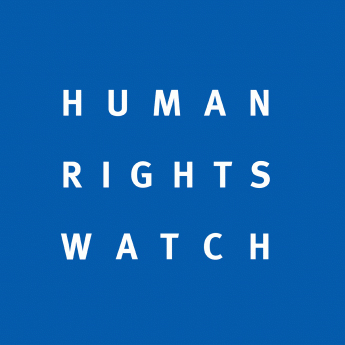
Emirati authorities have designated as “terrorist” 11 political dissidents and their relatives as well as 8 companies they own, reflecting the country’s indiscriminate use of overbroad counterterrorism laws and contempt for due process, Human Rights Watch said on 22 April 2025.
On January 8, 2025, Emirati authorities announced a cabinet decision unilaterally adding the 11 individuals and 8 companies to its terrorism list for their alleged links to the Muslim Brotherhood, without due process. The authorities did not inform these individuals or entities prior to the designation, nor was there any opportunity to respond to or contest the allegations. The move represents an escalation of the United Arab Emirates’ (UAE) transnational repression, targeting not only dissidents but also their family members.
“Throwing nineteen people and companies onto a list of alleged terrorists without any semblance of due process, and with serious ramifications for their livelihoods, makes a mockery of the rule of law,” said Joey Shea, United Arab Emirates researcher at Human Rights Watch…
Human Rights Watch found that all eight companies are solely registered in the United Kingdom and are owned or previously owned by exiled Emirati dissidents or their relatives. At least nine of the eleven designated individuals are political dissidents or their relatives. Only two of the eleven have been convicted or accused of a terrorist offense, though both under questionable circumstances, according to informed sources and the Emirates Detainees Advocacy Center (EDAC), a human rights organization supporting imprisoned human rights defenders in the UAE. One was convicted in absentia as part of the grossly unfair “UAE94” mass trial of political dissidents in 2013. The other was accused in a separate case related to supporting the “UAE94” detainees.
Individuals on the list found out about the designation only after the Emirates News Agency (WAM), the UAE’s official state news agency, published it on its website. It came as “a real shock, it was very difficult,” one of the people named told Human Rights Watch.
Human Rights Watch searched for the individuals and companies on global terror and financial sanctions lists, including the United Nations Global Sanctions list, the European Union Sanctions list, and the Consolidated List of Financial Sanctions Targets in the UK. None of them are included in these internationally recognized lists.
The UAE’s 2014 counterterrorism law uses an overly broad definition of terrorism and allows the executive branch to designate individuals and entities as terrorists without any corresponding legal requirement to demonstrate the objective basis of the claim. It does not set out a clear procedure for how this authority should be exercised, nor does it provide for any oversight.
Designated individuals face immediate asset freezes and property confiscation under the counterterrorism law and Cabinet Decision No. 74/2020. Those in the UAE, including relatives or friends, face a possible sentence of life in prison for communicating with anyone on the list. Human Rights Watch found that the designation has negatively affected individuals’ careers and personal finances, including through lost career opportunities and clients.
Exiled Emirati dissidents said the designations are part of the UAE’s ongoing crackdown on dissent and political opposition. “They want to hurt us as much as possible,” one individual whose name appeared on the list said.
Over the last decade, Emirati authorities have repeatedly targeted the Muslim Brotherhood and its Emirati branch, the Reform and Social Guidance Association (Al-Islah), in a widespread crackdown. Al-Islah is a nonviolent group that engaged in peaceful political debate in the UAE for many years prior to the crackdown and advocated greater adherence to Islamic precepts. Many of the detainees from the grossly unfair “UAE94” mass trial in 2013 are members of Al-Islah. The UAE designated the Muslim Brotherhood as a terrorist organization in 2014.
The 2014 counterterrorism law enables the courts to convict peaceful government critics as terrorists and sentence them to death. The law has been repeatedly used against political dissidents. In July 2024, 53 human rights defenders and political dissidents were sentenced to abusively long terms in the country’s second-largest unfair mass trial.
The UN’s first special rapporteur on counterterrorism and human rights has said that terrorism should be defined as narrowly as possible, warning that “the adoption of overly broad definitions … carries the potential for deliberate misuse of the term … as well as unintended human rights abuses.”
…The UAE appears to be escalating its persecution beyond openly outspoken dissidents to include family members who have not participated in politics nor spoken publicly about the country’s human rights record. “Many people whose names are on the list, they didn’t speak loudly against the government,” one person said.
In 2021, the UAE added 38 individuals and 15 entities to its terrorism list, including 4 prominent exiled Emirati dissidents. Human Rights Watch found that 14 of the 38 individuals and two of the entities are on other international global terror and financial sanctions lists. None of the individuals nor entities added on January 2025 were found on other internationally recognized lists…
https://www.hrw.org/news/2025/04/22/uae-dissidents-relatives-designated-terrorists
This post was originally published on Hans Thoolen on Human Rights Defenders and their awards.